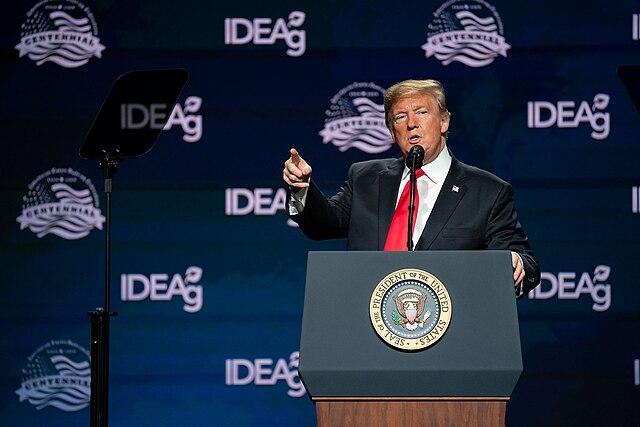As I read through yet another profile of undecided voters in a swing state who carry the future of our nations in their ballots, I notice that many of their reasons for being on the fence are the same. Electoral politics fatigue, lack of enthusiasm for a particular candidate, their grievances with Harris conflicting with their grievances for Trump, and more recently, not being able to shake off the memories from the economy under Trump.
And it seems like it’s not just the undecided voters handpicked by The New York Times who think this. I hear it in passing in the grocery store. I see people post about it online. Wherever I go, someone is saying they can’t vote for Harris because “Trump is good for the economy.”
In some ways, the conversation is unsurprising. After all, voters often cite the economy as their number one issue leading up to the election, and many people use their personal financial situation as a heuristic to judge general government performance. As Election Day draws closer, candidates champion their economic plans while pointing fingers at their opponent’s.
In a way, Trump has perfectly positioned himself for people to trust him with the economy. Before his foray into politics, Trump was known for his glitzy lifestyle, for being one of the wealthiest men and for embodying wealth itself. This embodiment of wealth, coupled with his business career, had lent itself to the idea that Trump possesses a special economic insight, an eye for economic policy, that his presidency will grant us a ticket to upward mobility. As we tread carefully after the pandemic recession, supply chain issues and record-level inflation, some people have developed a nostalgia for eight years ago, reminiscing on Trump’s economy and the ease of life under Trump.
However, that nostalgia is exactly just that – nostalgia. The reality is that Trumponomics was not as lucrative as promised. The Senate Joint Economic Committee has found that the strong economy Trump credits his last term for was largely a result of Obama-era policies to address the Great Recession. While Trump’s signature tax cuts initially increased corporate profits, they ultimately under delivered significantly on the promised level of three percent economic growth. Statistics from the Bureau of Economic Analysis find growth after inflation under Trump to average 1.45%, less than the 2.33% under Obama and 2.2% under Biden. His tariffs on China were paid by American consumers and businesses in the end. The deficit worsened under his presidency, and economists say it will further increase by how much? under his proposed tax policy. He failed to execute a solid plan to help Americans during the pandemic, leaving office with a net loss of three million jobs. Simply put, when you take off the rose-tinted glasses, Trump isn’t as good for the economy as he might seem.
Then how come despite the numbers, people still think a Trump presidency will cure our economic woes? One factor is that the Republican Party has, since its inception, branded itself as the party for business. These partisan associations create enduring images in our heads that are unlikely to shift overnight. But what separates Trump specifically from the other Republicans, like Ron DeSantis or Nikki Haley? I’d argue that it’s his persona. Trump’s status as America’s rich man and his embodiment of wealth, leads many Americans to automatically assume that a billionaire in the Presidency will grant billions for America. Perhaps this is a byproduct of the American Dream, the idea that one day, maybe you too could be worth 3.7 billion dollars.
However, it is important to remember that much of Trump’s presentation as a wealthy billionaire is exactly that — a presentation. Trump is, at his core, a reality television star. Much of his success, both socially and materially, came through his celebrity career. What separates Trump from other politicians — what draws in his dedicated cult-of-personality — is his understanding of performance. Trump is constantly aware of the optics — that’s why he was quick to leave his supporters with an enduring image seconds after an assassination attempt. His wealth is not the result of some unique entrepreneurial talent only he possesses. Trump became rich because of how he spun his father’s “small loan of a million dollars” into a celebrity career. His carefully crafted appearance has created an illusion that many have fallen for, but the reality of Trump’s economy cannot measure up to the smoke and mirrors of his larger-than-life personality. As undecided voters consider the economy when casting their ballot, they should move past the nostalgia of 2016 and view Trumponomics and the myth of Donald Trump with a more critical eye.




